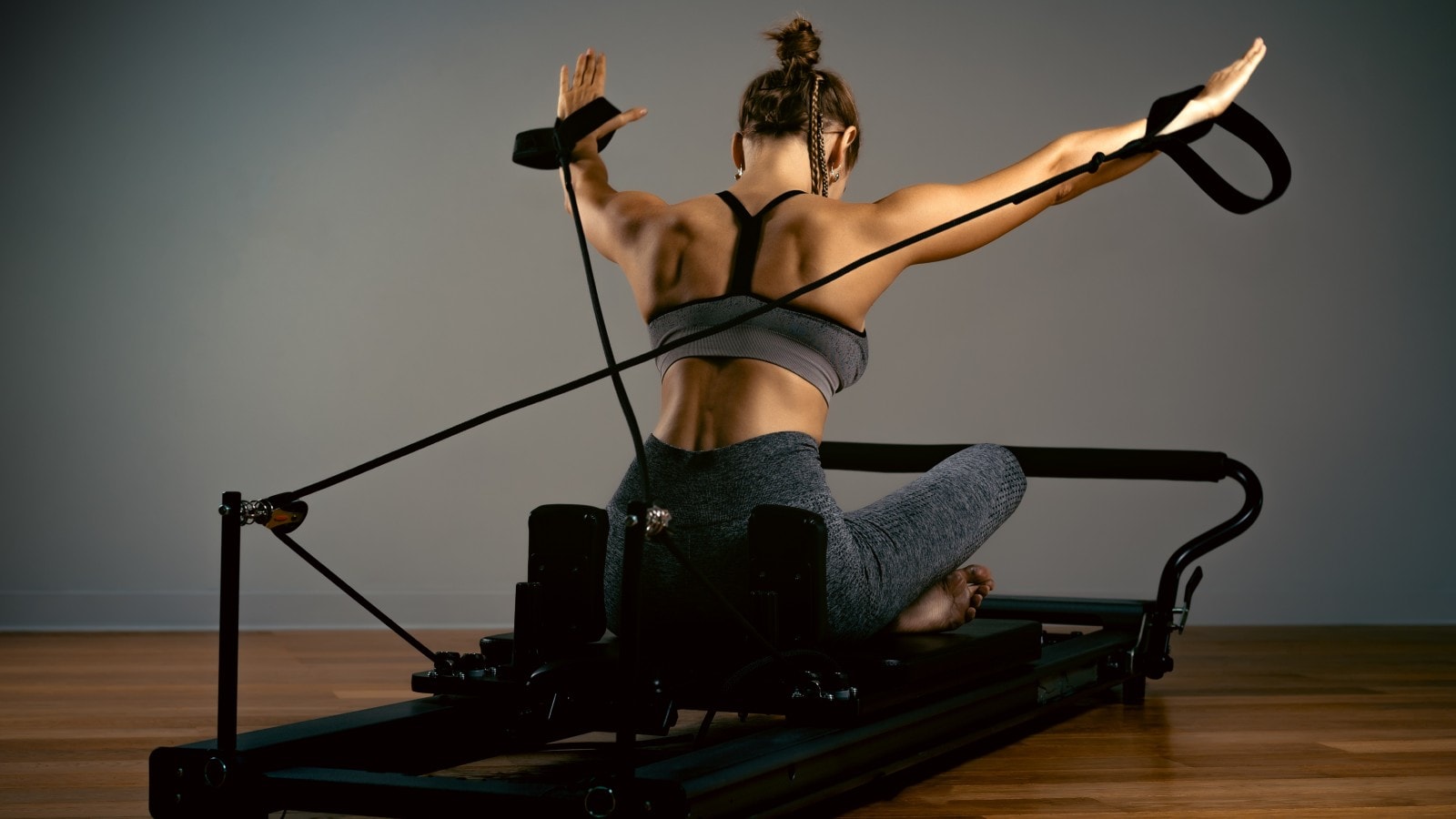
8 Simple Exercises for Quick Stress Relief You Can Do Anytime
3 months ago | 5 Views
In the contemporary, fast-moving, and demanding environment, stress has emerged as an unwelcome presence. It disrupts our tranquillity, diminishes our happiness, and can adversely affect our physical well-being. In addition to various relaxation methods, engaging in physical exercise can provide immediate relief. Beyond its physical advantages, a workout serves as a powerful antidote to stress, capable of significantly enhancing your life. By engaging in physical activity, you not only expend energy but also alleviate stress, anxiety, and negative emotions. Activities such as running, jogging, or yoga can be particularly beneficial due to their rhythmic qualities, which foster a meditative state, promoting mental calmness and emotional healing. These stress-relief exercises are straightforward to implement and follow.
Exercises for stress: Does working out help?
Exercise transcends mere physical activity; it serves as a potent means of alleviating stress. Engaging in exercise prompts the release of endorphins in our bodies, which are natural enhancers of mood that foster feelings of happiness and well-being, as indicated by research published in the journal Health Psychology and Behavioral Medicine. These endorphins play a crucial role in mitigating the adverse effects of stress hormones like cortisol. Furthermore, regular physical activity aimed at stress relief contributes to the alleviation of muscle tension that often accumulates during periods of anxiety.
Moreover, engaging in physical activity can enhance the quality of sleep by helping to regulate our sleep-wake cycles. Adequate sleep is vital for reducing stress and promoting overall mental health.
In addition to its physical advantages, exercise also enhances cognitive function, thereby improving our capacity to focus, concentrate, and solve problems.

Best exercises for stress management
Here are some easy and effective exercises for stress reduction you can follow, as suggested by fitness expert Mahesh Ghanekar.
1. Yoga and meditation
Yoga, an ancient discipline encompassing physical postures, breathing techniques, and meditation, is recognized as one of the most effective forms of exercise for alleviating stress, as indicated by research published in the International Journal of Yoga. The gentle and fluid movements characteristic of yoga facilitate the release of muscle tension, enhance flexibility, and promote better circulation. The deep breathing exercises integral to yoga practice aid in calming the mind and reducing anxiety levels. Additionally, meditation, often incorporated into yoga sessions, enables practitioners to concentrate on the present while releasing worries and negative thoughts.
Through the integration of these elements, yoga fosters relaxation, diminishes stress hormones, and contributes to overall well-being. It is advisable to practice gentle yoga postures such as Child's Pose (Balasana), Downward-Facing Dog (Adho Mukha Svanasana), and Warrior Pose (Virabhadrasana I). Furthermore, incorporating deep breathing and mindfulness meditation can significantly help in soothing the mind.
2. Running
Engaging in running is a highly effective exercise for alleviating stress, as indicated by research published in the International Journal of Molecular Sciences. During the act of running, the body generates endorphins, which serve as natural enhancers of mood and can assist in mitigating symptoms of depression and anxiety. The rhythmic aspect of running can also induce a meditative state, fostering mental tranquillity and encouraging relaxation. Consistent running can enhance sleep quality, boost energy levels, and improve cognitive performance.
3. Walking
Walking serves as a straightforward yet effective method of exercise for alleviating stress. Engaging in a walk, whether in a natural setting or within your local community, stimulates the production of endorphins in the body. These endorphins act as natural enhancers of mood, potentially alleviating feelings of anxiety and depression, as indicated by research published in the Journal of Clinical Medicine. The act of walking can induce a meditative state, fostering mental tranquillity and encouraging relaxation. Consistent walking can also contribute to improved sleep quality and enhanced productivity at work.
4. Strength training
Strength training serves as an effective method for alleviating stress. Engaging in weightlifting or utilizing resistance bands can lead to a reduction in stress levels through the release of endorphins, which are known to enhance mood, as indicated by research published in the International Journal of Environmental Research and Public Health. Consistent participation in strength training not only contributes to improved sleep quality and increased energy levels but also boosts self-esteem. As individuals develop muscle strength and achieve their fitness objectives, they often experience a heightened sense of accomplishment, equipping them to manage stress more effectively. Additionally, strength training can help alleviate muscle tension that tends to accumulate during busy periods.
5. Pilates
Pilates is a mind-body exercise that focuses on enhancing core strength, flexibility, and posture. According to a study published by Science Direct, it is among the most effective forms of exercise for alleviating stress. The practice involves slow and controlled movements that promote mental tranquillity and relaxation. Additionally, deep breathing techniques, which are integral to Pilates, can reduce anxiety and foster a sense of serenity. Furthermore, Pilates enhances bodily awareness and coordination, contributing to increased self-trust and reduced stress levels.

6. Tai Chi
Tai Chi, often referred to as "meditation in motion," is a gentle form of exercise recognized for its stress-relieving benefits, as indicated by research published in the Journal of Evidence-Based Complementary and Alternative Medicine. The practice involves slow, fluid movements combined with deep breathing techniques that promote relaxation and mindfulness. Additionally, Tai Chi enhances flexibility, balance, and coordination, contributing to improved physical and mental health. Engaging in this practice regularly can assist in stress management, elevate mood, and enhance overall well-being.
7. Dancing
Dancing stands out as one of the most pleasurable and invigorating activities for alleviating stress. Engaging in rhythmic movements accompanied by uplifting music can elevate your mood and diminish feelings of anxiety, as indicated by research published by Taylor and Francis. The act of dancing stimulates the release of endorphins, which are natural substances that enhance mood and foster feelings of happiness and well-being. Additionally, it provides an excellent platform for social interaction, further contributing to stress reduction. Whether you prefer ballroom dancing, hip-hop, or simply moving to your favourite tunes at home, incorporating dance into your routine can serve as an effective means of relieving stress.
8. Cycling
Cycling is regarded as an excellent form of exercise for alleviating stress. The rhythmic motion of riding can induce a meditative state, facilitating mental calmness and relaxation, as indicated by research published in the journal Frontiers. While cycling, the body releases endorphins, which serve as natural mood enhancers that can mitigate feelings of sadness and anxiety. Engaging in regular cycling can improve sleep quality, increase energy levels, and enhance psychological performance. Additionally, being outdoors and inhaling fresh air contributes to stress reduction and overall well-being.
Things to keep in mind
1. It is advisable to seek guidance from your physician, particularly if you have pre-existing health issues or have not engaged in physical activity for an extended period.
2. Begin your exercise regimen at a gentle pace and progressively elevate the intensity to prevent excessive strain, especially if you are a beginner.
3. Be mindful of any sensations of pain or discomfort, and modify your exercise routine as necessary.
4. Consider partnering with a workout companion, as having someone to exercise with can enhance your motivation and accountability.
5. Ensure to perform a warm-up prior to and a cool-down following your workout, as this practice can help mitigate the risk of injuries and lessen muscle soreness.
Takeaway
Engaging in regular physical activity to alleviate stress is an effective strategy for reducing anxiety and enhancing overall well-being. Whether your preference lies in calming yoga, energizing cardiovascular workouts, or strength-training routines, discovering enjoyable activities can greatly impact both your mental and physical health.
Read Also: Chair Yoga Unlocked: 10 Key Poses to Boost Senior Flexibility and Alignment





















